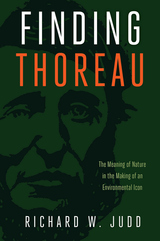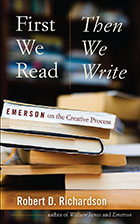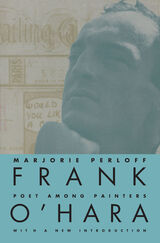4 start with F start with F

Moving decade by decade through this period, Richard W. Judd unveils a cache of commentary from intellectuals, critics, and journalists to demonstrate the dynamism in the idea of nature, as Americans defined and redefined the organic world around them amidst shifting intellectual, creative, and political forces. This book tells the captivating story of one writer's rise from obscurity to fame through a cultural reappraisal of the work he left behind.

Emerson advised that “the way to write is to throw your body at the mark when your arrows are spent.” First We Read, Then We Write contains numerous such surprises—from “every word we speak is million-faced” to “talent alone cannot make a writer”—but it is no mere collection of aphorisms and exhortations. Instead, in Robert Richardson’s hands, the biographical and historical context in which Emerson worked becomes clear. Emerson’s advice grew from his personal experience; in practically every moment of his adult life he was either preparing to write, trying to write, or writing. Richardson shows us an Emerson who is no granite bust but instead is a fully fleshed, creative person disarmingly willing to confront his own failures. Emerson urges his readers to try anything—strategies, tricks, makeshifts—speaking not only of the nuts and bolts of writing but also of the grain and sinew of his determination. Whether a writer by trade or a novice, every reader will find something to treasure in this volume. Fearlessly wrestling with “the birthing stage of art,” Emerson’s counsel on being a reader and writer will be read and reread for years to come.

James Engell has prepared the first broad treatment of eighteenth- and early-nineteenth century British criticism to appear in a generation, presenting the views of scores of writers on a variety of questions, many of which remain live issues today.
While offering major reevaluations of Dryden, Hume, and Johnson, Engell demonstrates that eighteenth-century criticism cannot be represented by just a few major critics or by generalizations about Augustan taste, neoclassical rules, or “common sense.” He presents a complex and highly varied body of theoretical writing and practical application by dozens of critics including Rymer, Addison, Welsted, Ramsay, Hurd, Gerard, Newbery, Campbell, Blair, Beattie, Jeffrey, and Hazlitt. He also analyzes the continued relevance of their critical work, drawing connections with modern writers such as Eliot, Frye, Saussure, Barthes, Culler, Bakhtin, and Lévi-Strauss.
Engell concludes with a stimulating essay on the nature and function of the critical process itself. For students and scholars conversant with modern critical theory, Forming the Critical Mind will offer some surprising and interesting comparisons.

"A groundbreaking study. [This book] is a genuine work of criticism. . . . Through Marjorie Perloff's book we see an O'Hara perhaps only his closer associates saw before: a poet fully aware of the traditions and techniques of his craft who, in a life tragically foreshortened, produced an adventurous if somewhat erratic body of American verse."—David Lenson, Chronicle of Higher Education
"Perloff is a reliable, well-informed, discreet, sensitive . . . guide. . . . She is impressive in the way she deals with O'Hara's relationship to painters and paintings, and she does give first-rate readings of four major poems."—Jonathan Cott, New York Times Book Review
READERS
Browse our collection.
PUBLISHERS
See BiblioVault's publisher services.
STUDENT SERVICES
Files for college accessibility offices.
UChicago Accessibility Resources
home | accessibility | search | about | contact us
BiblioVault ® 2001 - 2024
The University of Chicago Press









